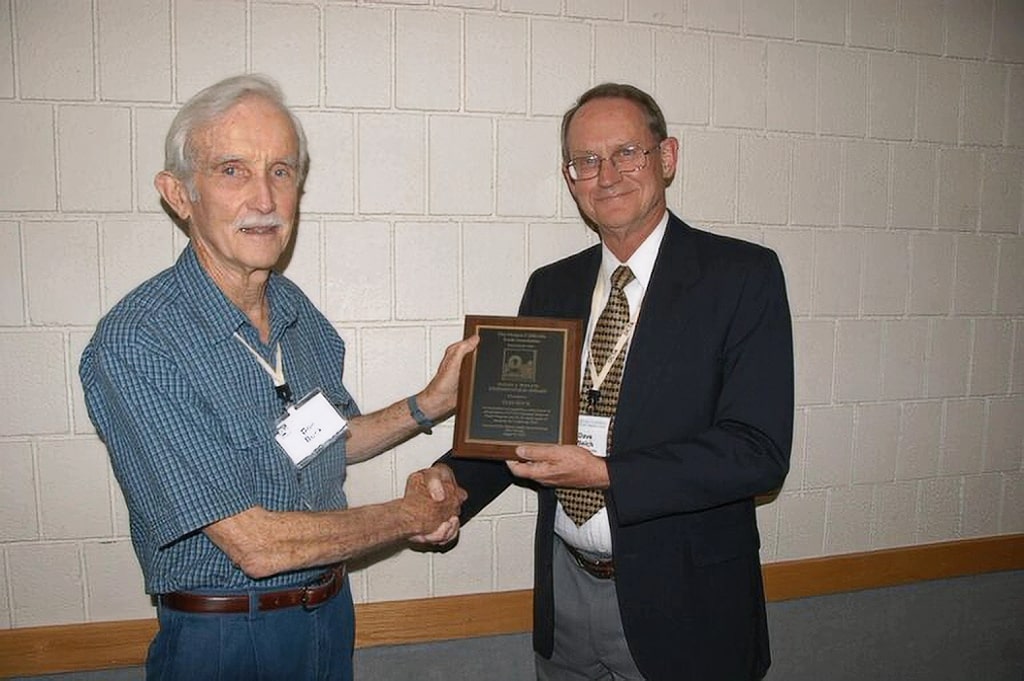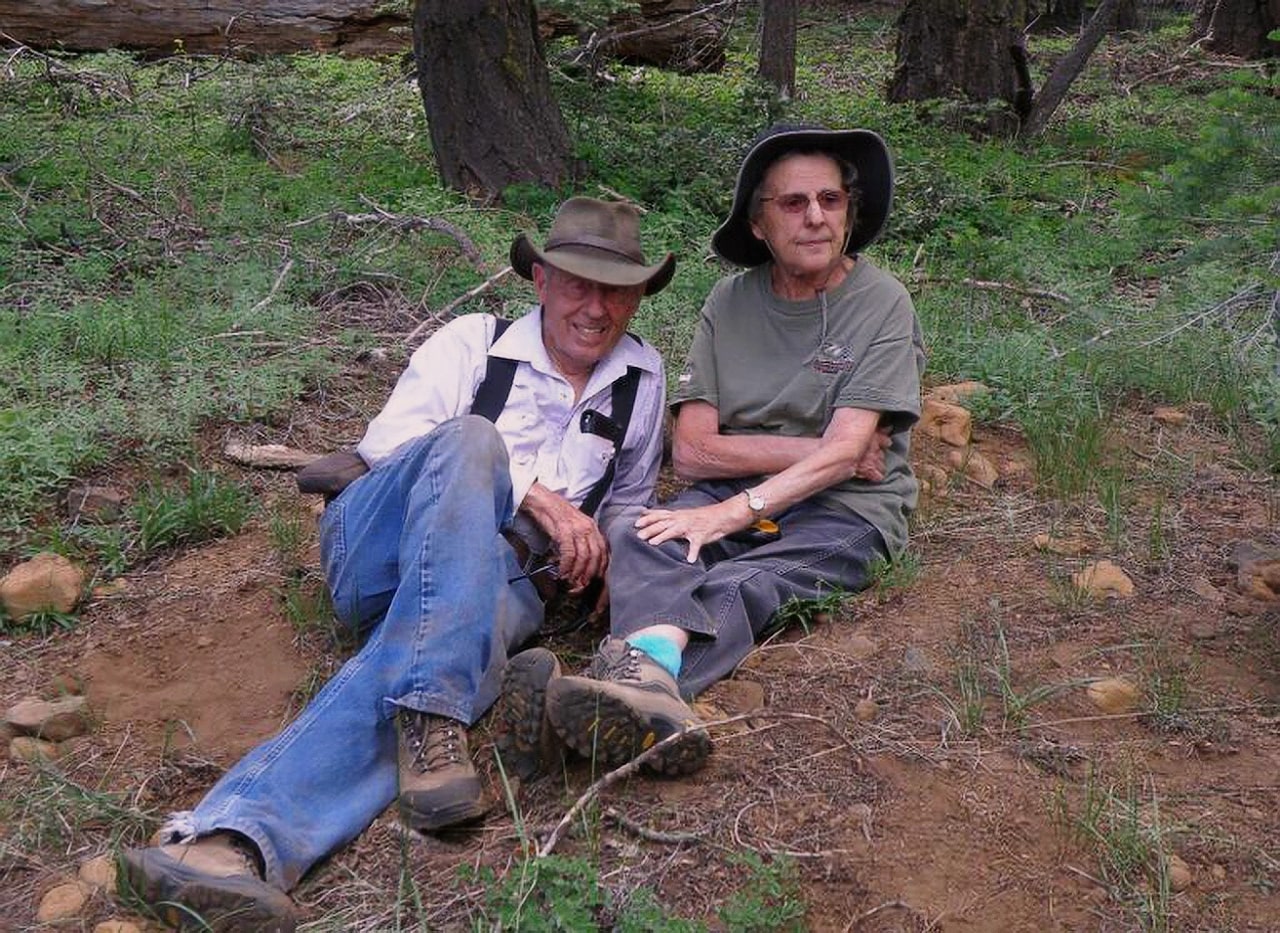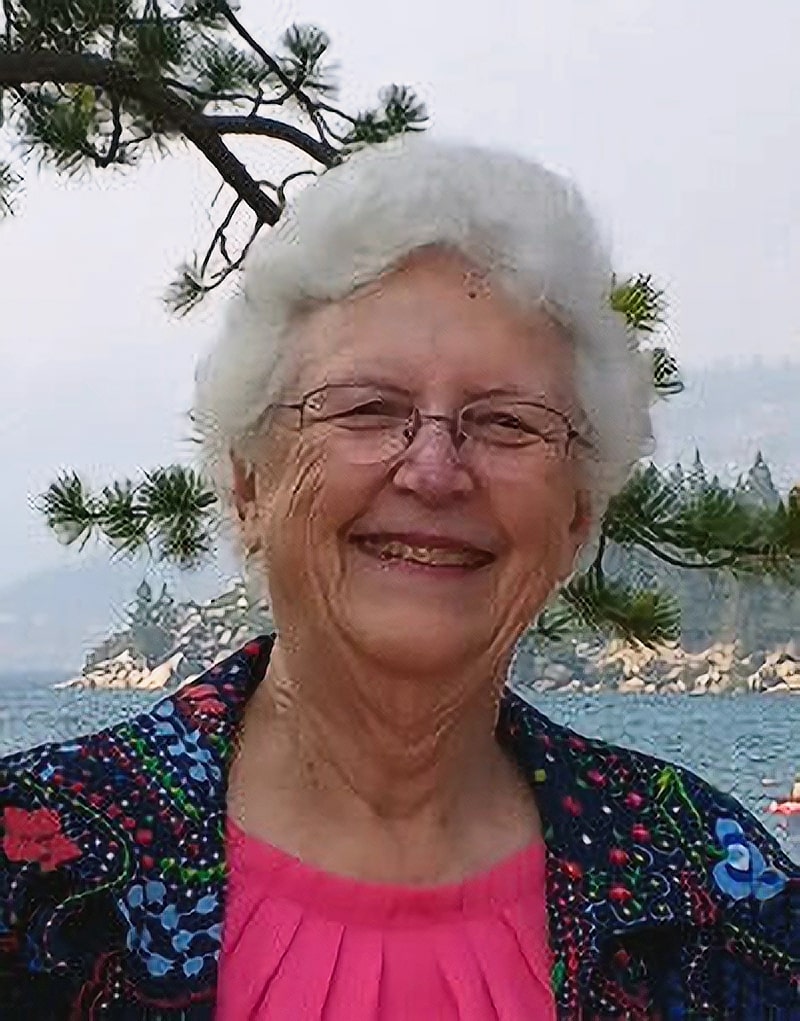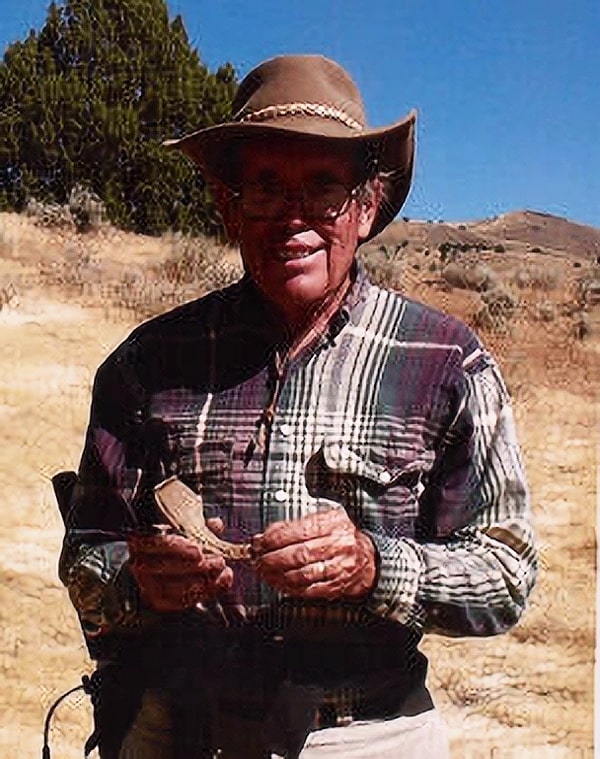We Remember

Don Buck
Don Buck, a charter member of OCTA and an active member of the CA-NV chapter, passed away at the age of 95 in Sunnyvale, CA on September 13, 2022.
Don was known for his on-the-ground discoveries and mapping, his diary collection, and research on the western emigrant trails. He mapped the California National Historic Trail for the National Park Service and worked with both the Bureau of Land Management and U.S. Forest Service on historic trail preservation. He served on the Board of Directors of both OCTA and Trails West, Inc.
Don contributed much to promoting the scholarly side of OCTA. He could be counted upon for sound advice and the encouragement of new techniques for trail studies. He was active in organizing the long-range goal of computerizing OCTA’s overland emigrant documents. As a mapper, he was the principal author of the Mapping Emigrant Trails (MET) Manual, the standard for trail research, mapping and marking. The MET Manual is accepted as the standard by government agencies. He was also a key participant in the “Trail Turtles” which has provided extensive documentation of trails in the Southwest. He worked tirelessly on Trail West, Inc.’s trail guides.
Don received the chapter’s Lifetime Achievement Award in 2005 and the Trail Boss Award in 2009.
OCTA has lost a long-time friend with the passing of Richard (aka Dick) Silva, 92, of Yreka, CA, who died September 8, 2022.
Richard was one of the all-time premier emigrant trail and wagon road mappers. Richard’s focus over the decades was on numerous trails in northern California, southern Oregon and northwestern Nevada that include the Yreka Trail, Lockhart Wagon Road, Applegate Trail, Nobles Trail, Burnett Cutoff and sections of the Lassen Trail. He used a unique blend of cartographic computer techniques combined with Government Land Office surveyors field notes, historic map overlays, and old aerial photo overlays to locate these trails on the ground. Richard also helped develop the most common method now used by archaeologists for field verifying the trail segments – the use of metal detectors to locate artifacts. Artifacts found with the use of the metal detector were recorded, GPS’d, and photographed. He was also essential to the process of further identifying the function and possible date of artifacts. Richard also produced detailed Mapping Emigrant Trails (MET) paper maps. Not only did the maps show detailed trail location, trail classifications and a host of other information, the margin notes, front and back had diary quotes, site locations, newspaper articles and any other research material he could find. His trail research was sought after by historians, libraries, museums and government agencies. He worked closely with the Forest Service, Bureau of Land Management, and the National Park Service, protecting trails from timber harvests and development and provided the agencies with the results of his mapping experience and offered CalFire his knowledge of the location of emigrant trails.In 2016 Richard was awarded the Lifetime Achievement Award, the CA-NV Chapter’s highest award.

Richard Silva

Carol March
Carol Hodge March was born and raised in Sacramento. Soon after graduating from college she married Hugh. Carol and Hugh raised two children. Carol was an active volunteer in many of the children’s activities as they grew up. Before their children were born, Carol taught English and Social Studies and then assisted Hugh with his business for many years. Carol spent many years pursuing her interest in history and family stories researching family genealogy.
Carol spent summers hiking in the mountains with her dad around Echo Summit very near the campground where their cabin was located are remnants of the Johnson’s Cutoff. Just a few years ago she hiked with OCTA members in the same area. One of Carol’s prized possessions was an iron ox shoe she and her dad found while hiking through those woods many years ago.
Carol’s years of exploring the mountains as a youth, and researching her ancestral families who migrated west along emigrant trails, encouraged her and Hugh to join OCTA. The first conference they attended was in Sacramento in 1991. On the Roller Pass hike, one of the Sacramento News channels sent a reporter/camera man along and Carol was just ahead of them on the trail. Her pink socks showed up on the news that night as part of their report. Carol was active in OCTA, assisting the planning for the Chico and Tahoe National OCTA Conventions, as well as serving as both secretary and treasurer of the California-Nevada chapter for many years. In 2013 Carol and Hugh were presented the Lifetime Achievement Award by the chapter.
Carol played violin in the Stanford Symphony while a student and later played in the Nova Vista Symphony for 35 years, in pit orchestras for summer musicals at Foothill College, and most recently 20 years with the California POPs Orchestra. Tending a large rose garden, delving into family history and exploring the pioneer trails through OCTA with Hugh and daughter Karen were just a few of her other pleasures in life! She loved being with family and preparing for the holidays. She enjoyed working on puzzles and playing games and welcomed learning and adventure. Her generosity, sense of humor, contagious smile, and joy of playing music will be greatly missed and always remembered.
Ed Bagne, an avid metal detector on trail mapping teams, died February 18 in La Canada at the age of 84. Ed spent his career as a technical writer in the aerospace industry.
After retirement he became interested in metal detecting and its use in historical archaeology. For years he and his wife Ann participated in the Forest Service’s Passport in Time program, using metal detectors to confirm the location of many historic trails as well as historic military sites. He also became involved in trail projects with the CA-NV Chapter in the Sierras.Ed showed his commitment by traveling many, many miles to attend numerous OCTA outings and events. He provided many interesting moments while working his magic on the trails. He was a regular participant with the Beckwourth, Johnson Cutoff, Grizzly Flat, Carson and Georgetown Mapping groups. He never hesitated to wander the mountains and valleys looking for swales, clambering up and over obstacles and engaging in the work to uncover, document and preserve the artifacts that helped confirmed the work of those who had come before.
While doing the slow detail orientated work, Ed was always engaging in conversation, sharing experiences and special moments of his life. He did not hesitate to speak his mind, sharing his opinions on the work, life and any subject that came to the forefront. Chapter member Dick Waugh said of Ed “.. I remember once there was a VERY steep section on the trail. I told Ed not to bother going up the hill, concerned about the difficulty of the climb. I got distracted on another matter. When I checked on Ed he was 100 yards up the steep incline asking me to come up and confirm a find he had made. Ed was confident and entertaining. I spent many hours listening to his adventures and his take on life. When he and Ann participated in a project I always migrated to Ed and his smile. When Ed and Ann had to pass on outings along the Beckwourth I knew there would be a little less ‘sparkle’ during the work day. He is missed.”
Ed is survived by his wife, Ann, two daughters, and two granddaughters.




